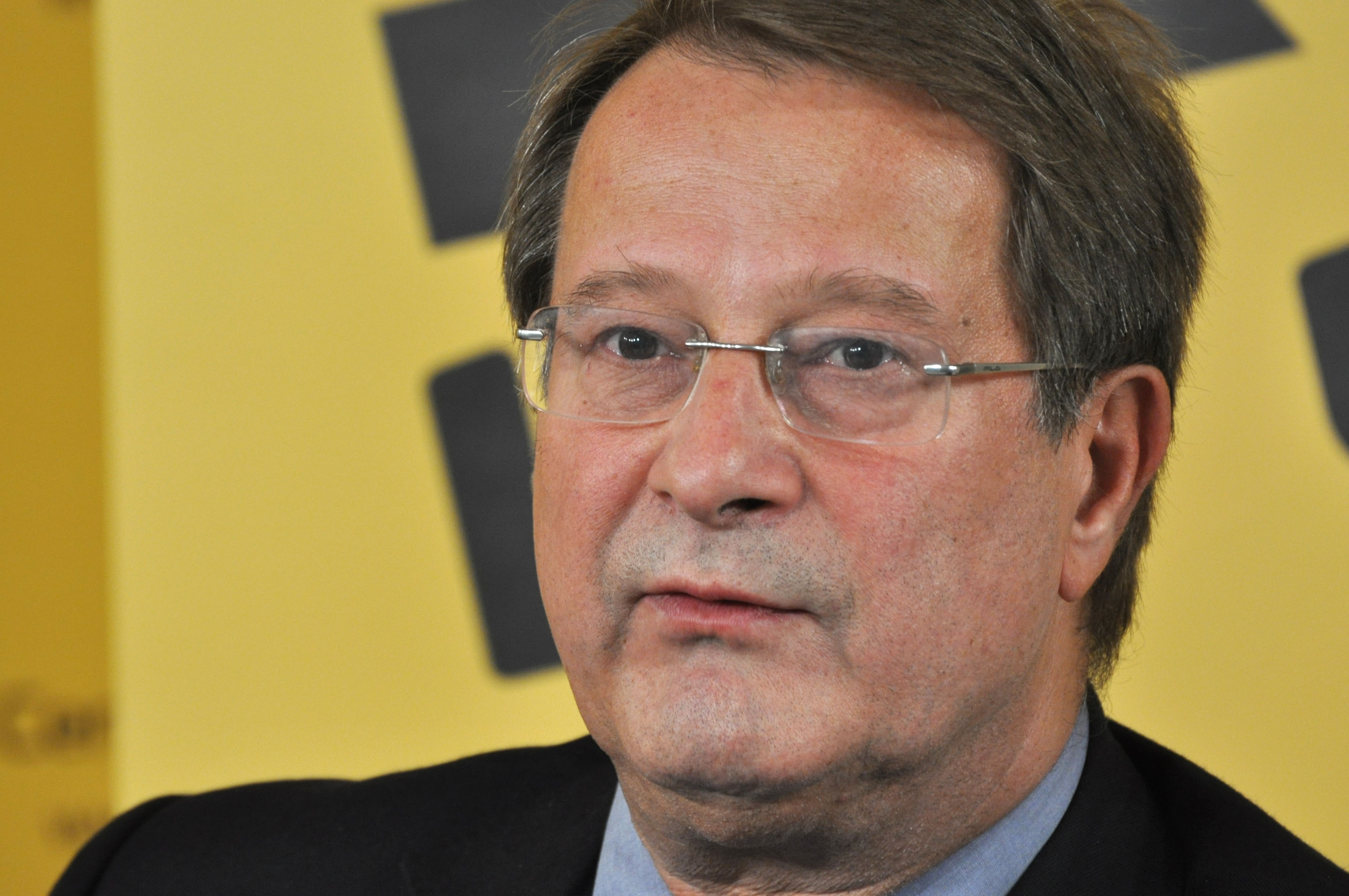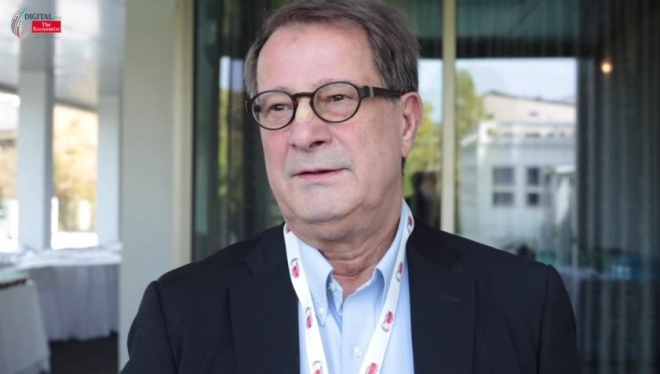Text: Žikica Milošević
In the turbulent world in which the New Cold War arises and the Middle East is quaky, every year is unpredictable. We interview one of the greatest conosseurs of the foreign policy, Boško Jakšić, about the future perspectives.
As a long-time analyst of world events, can say that this year’s series of surprises in the world (Brexit, Tramp) really were surprises?
They were surprises, and it’s significantly devastating. According to public opinion agences and the media who have – in the case of Brexit slightly less, and in the case of Trump absolutely – tried to create an atmosphere of wishful thinking. If there was no such a biased euphoria, it might be easier to identify the true mood why the UK decided to leave the EU, and the Trump’s move into the White House. In that case, we would not be surprised, or would be much less surprised.
Can we say that what has happened in terms of the new wave of populist conservatism in the Islamic world – 30 or 40 years ago, the Islamic world was much more liberal, and then from the Iranian revolution to the Arab Spring (not to mention the Taliban and ISIS), everything was actually a series of anti-secular and populist revolutions?
I would not accept the coin “new conservatism”. In Islam, especially the Arab world, political conservatism is constant. Even in times of experimenting with socialism in Egypt, Syria or Iraq, these societies never even tried to get closer to liberal values, always being totalitarian. The problem is of another kind. With the exception of the oil-rich Gulf, “the Arab street” is sinking into despair, a corrupt and repressive regimes have not tried to solve the problems of unemployment, to reform the system of education or health. The West, on the other hand, was interested in oil and arms sales, and despotic regimes suited them as they were persecuting Islamic fundamentalists were increasingly entering public life with the slogan “Islam is the solution”. Over time, the slogan became receptive for millions of malcontents. The Arab Spring had a high degree of spontaneity in Tunisia and Egypt, and what happened later in Syria and Libya is more or less thinly disguised project of regime change. No populism – there’s only radical Islam and its protagonists are each time more organised, ideologically stronger and more brutal. The Americans have to answers why for decades they did not help the Arab world to establish a more modern, democratic society and why they stubbornly clang to interventionism which radicalised Muslims.
Are the events in the world “sinusoidal” – so that there are merely same cyclically alternating phases (nationalism – internationalism, liberalism – protectionism) or indeed we go in a direction of development?
Ibn Khaldun, the famous Arab philosopher from the time of the “golden era” of Islam, is the creator of the theory of cyclical movement of the history of civilisation. It was created in the Far East, China, shifted toward Mesopotamia and Persia, then thawed for Greece to Rome. It then came to Europe and America and in many ways it has today returned to China. The large millennium circle is finisged. This kind of dialectic is true for all other phenomena, including those listed in question. And do not forget, each stage contributed to the overall development.
Do you agree with The Guardian analyst Simon Jenkins that “the identity apostles” and excessive political correctness (PC), “aggressive” protection of all minorities, women, LGBTQ-population, Latinos, immigrants, African-Americans and so on led to Trump and Brexit, ie. that the fact that the only ones who could be freely insulted were poorer white men led to this fury?
The “aggressive” PC theory holds some truth. The problem is in the performance of the PC which is of course unquestionable. See contemporary film. If they want to get any prize, screenwriters must introduce characters from the LGBT community. If Muslims in Western Europe insist on the right of women to wear the hijab then the Europeans had to insist that their women in Saudi Arabia do not have to go veiled. Which they don’t, because of the PC. It is irritant for a part of the population. Islamophobia is on the rise as we saw during the refugee crisis. It was the fear of immigrants which contributed to Brexit and Trump’s victory, who introduced himself as the protector of white Americans, but was not a decisive factor. The key question is dissatisfaction of the “victims of globalisation”, tens of millions of those who did not have that benefit from free trade and the growth of general wealth, but they began to regress.
Is globalisation dying or just knocked down?
Globalisation has brought great benefits to humanity. IT technology is changing the world, but the form it has reached urged to be adjusted. It is knocked down, and the biggest problem is that the ruling political elite recognise that something has to change. They will face an uncertain attempt to limit the power of global corporate capital being misappropriated and turned into an all-powerful force for its own right. It will be a serious conflict.
Do you think Iran will be a new version of China or the Gulf states after the economic boom, as some predict? Of course, with a huge influx of capital.
Iran has for decades been under severe economic sanctions, political isolation. Do not forget that Iran and under the regime of punitive measures succeeded in launching a satellite into space, produced missiles, built motorways, raised health care and its investments in education are among the largest in the world. It is a serious country whose unique connection system of theocracy and the Republic of functioning despite the wishes of many. Iran became indispensable regional power. Involvement of billions of dollars that were frozen by foreign banks and knocking Western investors (and China) suggest a new boom. How influential is the Islamic Republic can be seen from the recent agreement of OPEC to reduce oil production – and that Iran is allow to increase production to make up for losses from the time of sanctions. Iran does not copy the Chinese model, nor will it work. As it has no intention of wasting its wealth like the conservative monarchies of the Gulf. Iran is a force for itself, and it is all about how it will resolve its conflict with Saudi Arabia, a Sunni-Shiite conflict spread to the entire Middle East with unforeseeable consequences.
Turkey is geostrategic turning away from Europe. How realistic is the global association of “rogue” states that are finding their own special way out of liberal democracy, on the Eurasian mainland, from Turkey and Russia via Iran and India to China and Mongolia?
Europe is the one who turned down Turkey, although negotiations on EU membership opened back in 1987. Neo-Ottoman and pro-Islamist agenda of the PM Erdoğan showed that Ankara wanted a future bound to the East. The (now slowed) economic boom, brought Turkey back to historic areas where it once reigned: the Balkans, the Black Sea Basin, the Caucasus, the Middle East. Turkey wants to regain the glory of imperial times, and this is manifested by rejection of Western demands to respect the norms of liberal democracy requested from any NATO member. The repression after the failed military coup of July has further alienated Turkey from the West. Turkey is therefore seeking new allies. Ankara has renewed its partnership with Russia – although in is uncertains since there are differences about the fate of President Assad. In the model merge Islam and democracy promoted by Erdogan’s problem is that there is less democracy and more Islam. It can easily prove to be an obstacle to cooperation with Russia and China – fearing Islamisation. Turkey, at the same time, shows the ambition to lead the Islamic world – which leads to collision with Iran. Turkey has in recent years regained the role of great powers in the wider region, but Erdoğan’s policy does not promise permanent alliances since from doctrine “zero problems with neighbours”, Turkey has now problems with all of its neighbours.
Fukuyama 25 years ago triumphantly announced the “end of history”, a Huntington announced a clash of civilisations. Neither happened. How the “frontlines” will be drawn in the future?
The frontlines have already been severely mutated. There’s no longer the great ideological conflict. Fukuyama talked about that establishment of the neo-lib model, which will last forever. The deep structural crisis of the West since 2008, destroyed the foundations of this theory, and it is obvious that the neo-lib have to be changed in order to restore natural values of social justice. Serious economic theorists are already talking about it, but politicians largely offer cheap populist answers that swept America and Europe. Huntington unfortunately so far has not been denied. André Malraux, Minister of Culture at De Gaulle, predicted that the 21st century would be the century of religion. Boom of Orthodoxy, the impact of “Bible Belt” in the US. And of course Islam as a fastest-growing religion. Threats of radical Islamists to kill all “infidels” or calls to a new crusade. I am deeply convinced that the risk can be removed only by giving up the thesis of the superiority of one civilisation over another, an “enlightened” religion over the “primitive” other.
How do you explain the rebellion of Eastern European EU member states that do not want to follow the “excessively liberal” values of Western EU, in terms of social, national or economic measures?
The members of the east ern EU trying to prove their orthodoxy by promoting conservative values. Therefore, Hungarian PM Orbán proclaimed himself “a guardian of Christian Europe” at a time while Angela Merkel promoted the open-door policy. Important are the circumstances that led to the division of the “liberal” and “illiberal” EU. Extremely tense relations between the EU and Russia, allowed Poland and the Baltic countries to present themselves as a bulwark against Russia. The level of development of the West and the East is still very uneven. The EU in recent times too often shows that there is a serious deficit of a common policy. The debt crisis has divided the EU to the north and the south, migrant crisis in the west and east. The EU is seen as divided into regions: the Mediterranean, Central European, Germanic-Scandinavian, Eastern European. Tomorrow maybe the Balkans. The project of political integration lags far behind the economic and financial integration. State-nationss are too strong and unwilling to give up their identity. Brexit is the most serious blow to the European project since its inception. Anti-European forces have strengthened throughout the Union, from France and Italy to the Netherlands and Denmark. The EU is facing serious risks of its survival.
Can we in Serbia and other countries of “no man’s land” “play dead until the bears go away” and the shelter in the lee of world events, when we did not do it in the 90s?
Of course it feels great to be in the lee. The problem is that this is our Western Balkan “lee” turned into a “line of fire”, as John Kerry said. In the new Cold War atmosphere we cannot “play dead while bears go away.” The West and Russia after the outbreak of the Ukrainian crisis demonstrated that this is no longer a peripheral area of their interes, trying to determine their positions, or at least to prevent their rivals to do so. These “bears” have learned lessons, checking everyone. Further aggravation only means that the will say “if you’re not with us, you’re against us.” This unpleasant either-or situation can be prevented a lowering of tensions. Something Mr Trump promises. Then we could feel relieved. Otherwise: it is either-or.

